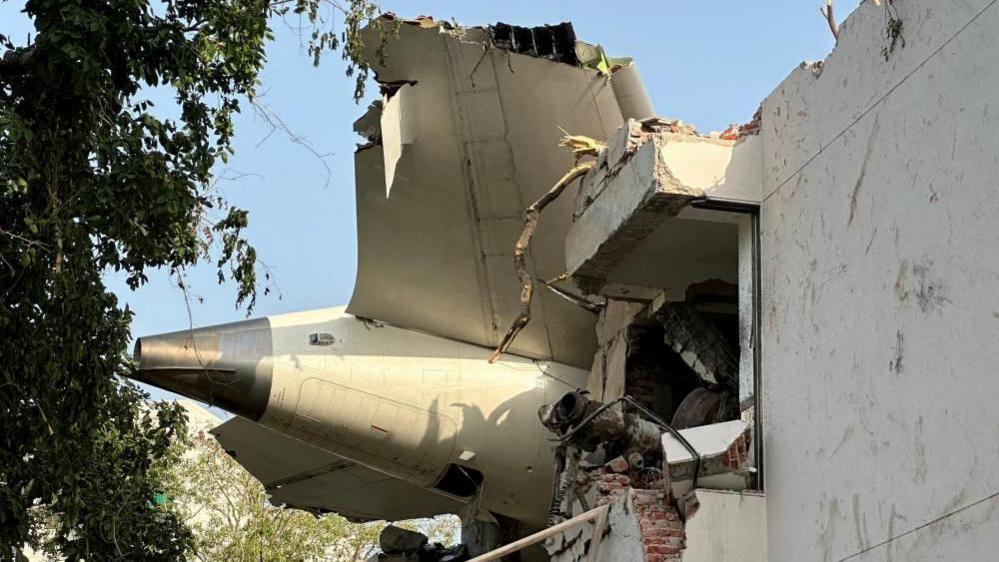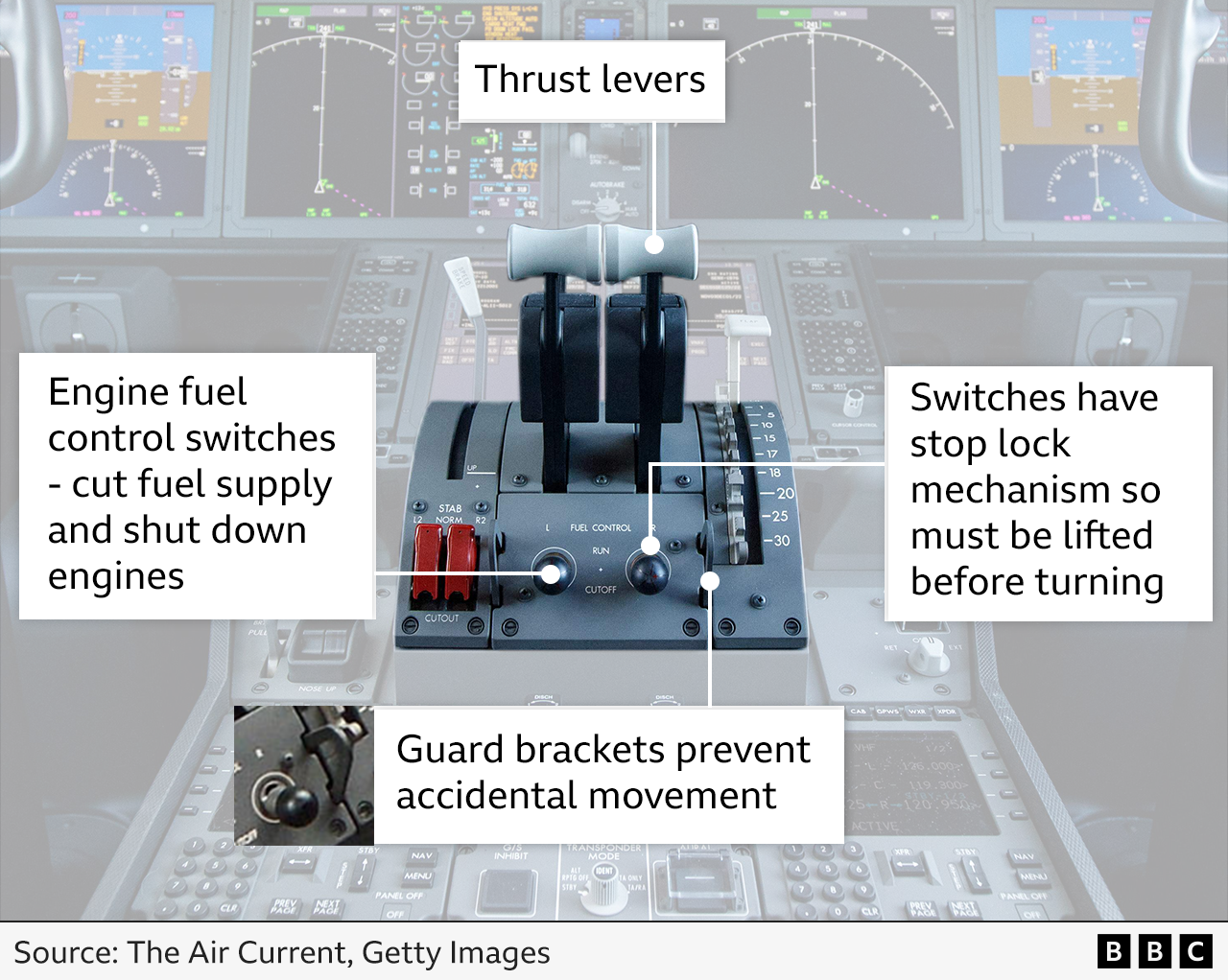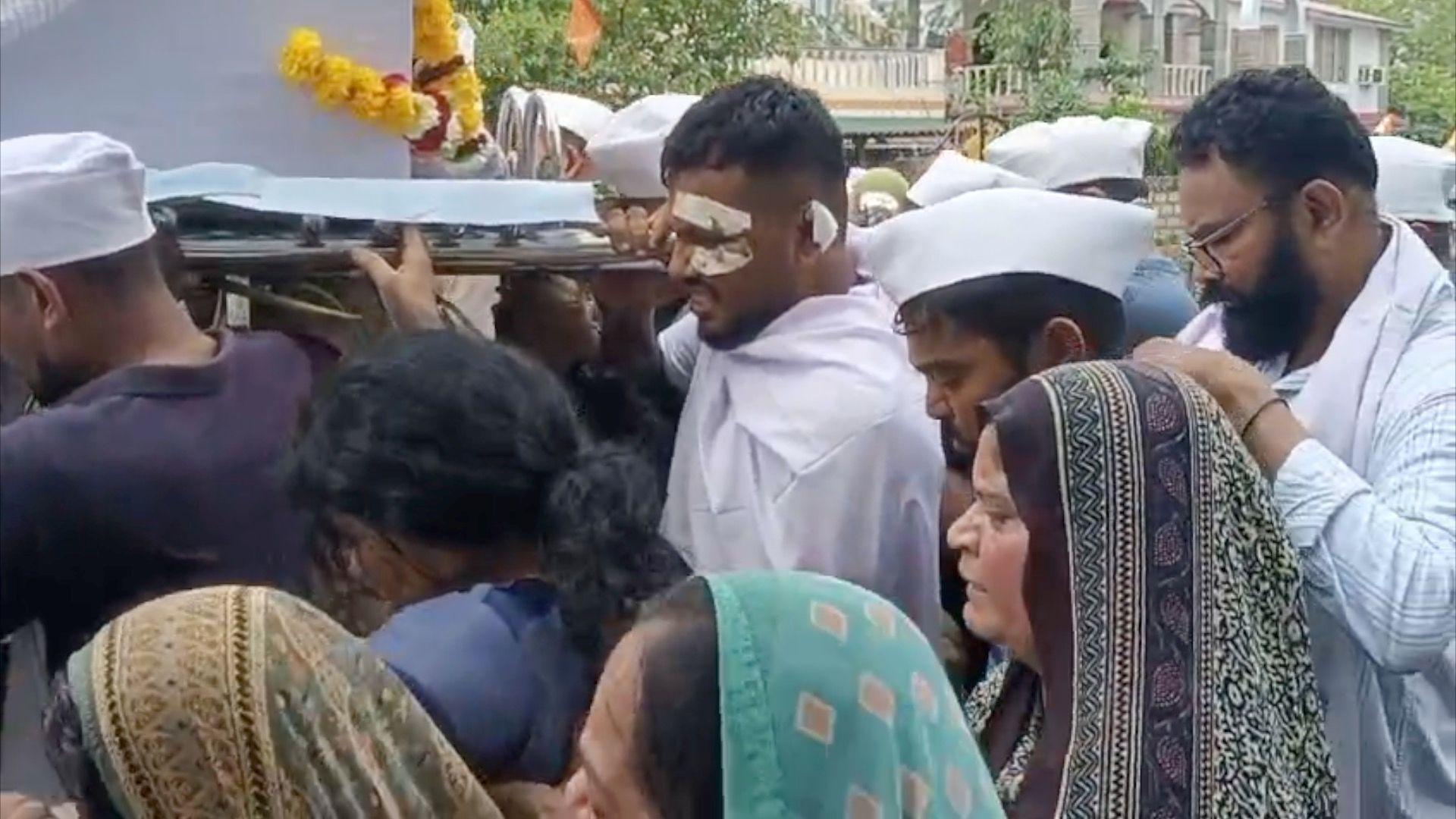Fuel to engines cut off before Air India crash, preliminary report says

260 people died when the Air India plane crashed in June, including 240 who had been onboard and 20 more at ground level
- Published
Fuel to the engines of the Air India plane involved in a deadly crash was cut off moments after take-off, a preliminary investigation report has found.
In recovered cockpit voice recordings, the report said one of the pilots can be heard asking "why did you cut off?" - to which the other pilot replied he "did not do so".
The London-bound Boeing 787-8 Dreamliner crashed less than a minute after taking off on 12 June from Ahmedabad airport in western India, killing 260 people, most of them passengers. One British national miraculously survived the crash.
The investigation led by India's Aircraft Accident Investigation Bureau (AAIB) is expected to produce a more detailed report in 12 months.
According to data from the flight recorder, both of the plane's fuel control switches moved from the run to the cut-off position in the space of a second, shortly after take-off.
The switches are usually only cut off to turn off the engines after landing, or during emergency situations such as an engine fire - rather than during take-off.
The cut-off caused both engines to lose thrust, the AAIB report said., external
There is then confusion heard in the cockpit, with one pilot asking the other why he had switched off the fuel, which the other denied. The Gatwick-bound plane was being piloted by Captain Sumeet Sabharwal and co-pilot Clive Kundar. The report does not specify which voice is which.
The fuel switches then moved back into their normal in-flight position, automatically starting the process of relighting the engines. One engine, the report said, was able to regain thrust - but could not reverse the plane's deceleration.
One of the pilots submitted a Mayday call just before the plane plummeted and crashed into a building used as doctors' accommodation, causing an explosion.
Both pilots had an "adequate rest period prior" to the flight, the report said.
Experts had previously speculated that birds could have caused the crash, but the report said that "no significant bird activity" was observed in the vicinity of the plane's flight path.
The Federal Aviation Administration (FAA) had issued a Special Airworthiness Information Bulletin in 2018 highlighting that some Boeing 737 fuel control switches were installed with the locking feature disengaged, the report said.
The issue was not deemed an unsafe condition requiring an Airworthiness Directive - a legally enforceable regulation.
The same switch design is used in Air India's VT-ANB aircraft which crashed. As the bulletin was advisory, Air India did not perform inspections.
Experts who spoke to the BBC offered differing opinions on whether this could have played a factor.

An Air India spokesperson said the airline acknowledged receipt of the preliminary report.
"We continue to fully co-operate with the AAIB and other authorities as their investigation progresses. Given the active nature of the investigation, we are unable to comment on specific details and refer all such enquiries to the AAIB," the Air India spokesperson added.
In a statement, Boeing said it would defer to AAIB to provide information about the crashed plane, in adherence with protocol under the UN International Civil Aviation Organization (Icao). It also said it continued to support the investigation and its customer, Air India.
The US National Transportation Safety Board said that there were no recommended actions in the report aimed at operators of Boeing-787 jets or the GE engines.
The accident marked the first time a 787-8 Dreamliner suffered a fatal crash since entering service in 2011.
The crash is a major setback for Air India, which is in the middle of a business turnaround following its privatisation. It was bought out by the Tata Group from the Indian government in 2022.
The airline has announced a cut in international operations on its wide-body aircraft as it grapples with several disruptions in the aftermath of the crash.
This story has been corrected to clarify that the Federal Aviation Administration issued the bulletin about Boeing 737 fuel control switches in 2018
- Published14 June

- Published19 June

